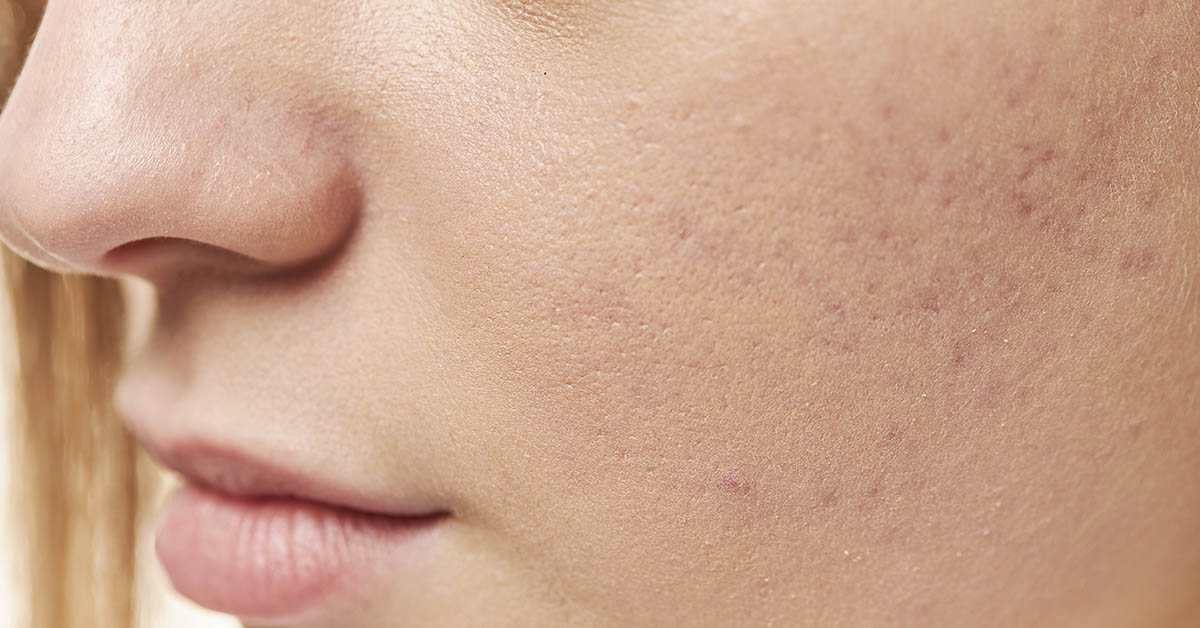Skin care is important when it comes to having a healthy complexion. But a balanced diet might be even more crucial. Vitamin deficiencies could affect the skin in many ways, such as dry patches, discoloration, bruising, and pimples.
Signs of Vitamin Deficiencies on Your Skin
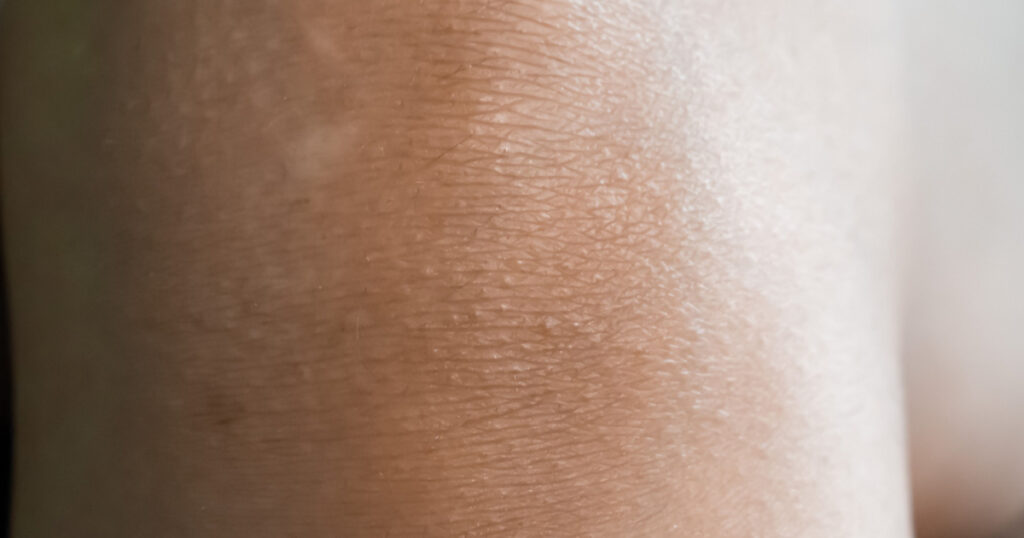
Here are skin abnormalities to look out for but remember, it’s always better to correct deficiencies with food. Check with your doctors before taking any new supplements since some could interact with medications and negatively affect existing health conditions.
Read: 3 Vitamin Deficiencies Linked to Headaches
Dandruff and scaly patches of skin
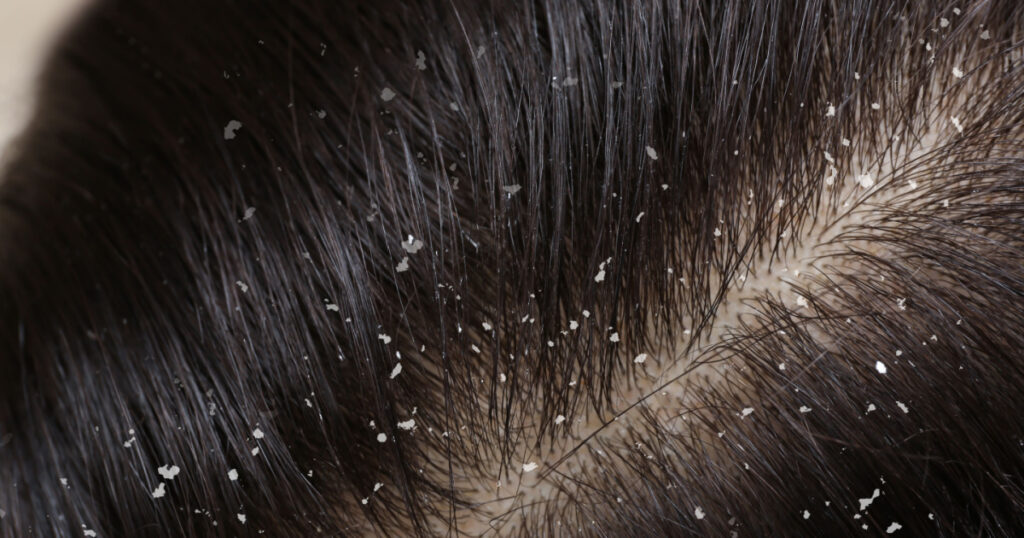
Dandruff and seborrheic dermatitis are both among the skin disorders that target the body’s natural oil production, resulting in itchy and flaky skin. While dandruff appears mainly on the scalp, seborrheic dermatitis can also occur on the face, armpits, groin, and upper chest. Both disorders are very common, but they are most likely to affect newborns, teens experiencing puberty, and middle-aged adults. Moreover, many factors can cause the conditions, and one of them may be a poor diet. As of now, the effects of diet on dandruff and seborrheic dermatitis are not fully researched,
You may benefit from incorporating these nutrients into your meals:

- Niacin (vitamin B3)
- Riboflavin (vitamin B2)
- Pyridoxine (B6)
- Zinc
Nail brittleness and discoloration

Nails can say a lot about what’s happening in the body. Firstly, brittle nails could mean there’s an iron deficiency. White lines or marks on the nail can indicate a zinc deficiency. Additionally, nails with a brown-gray color, vertical marks, and round shapes could be a sign of a deficiency in vitamin B12.
Read: Panic attacks and anxiety are linked to certain vitamin and mineral deficiencies
Pale skin
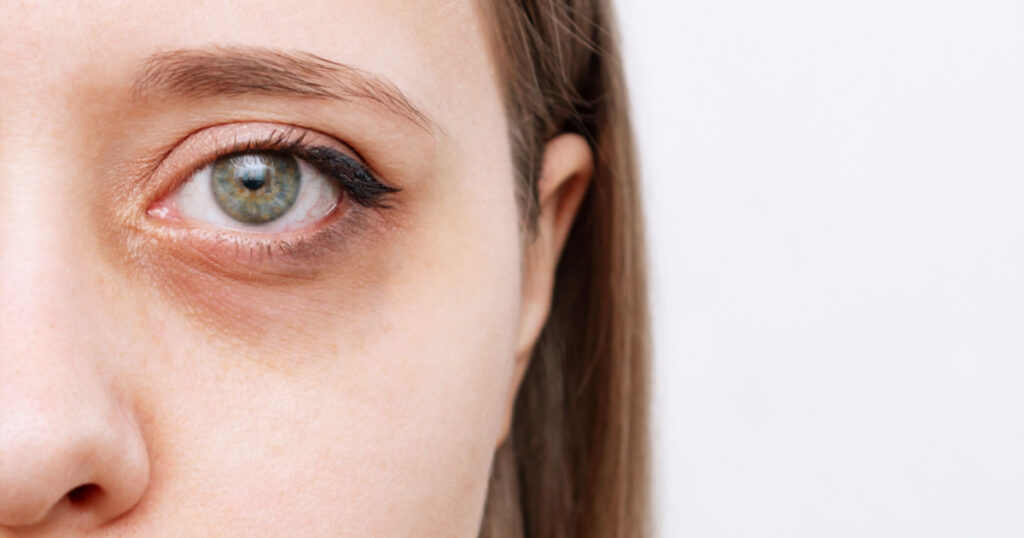
If the skin looks unhealthily pale, it may indicate a deficiency of several nutrients. It could also be an indicator of anemia or poor circulation. Therefore, testing for nutritional deficiencies is advisable to know what the body needs.
This may include:
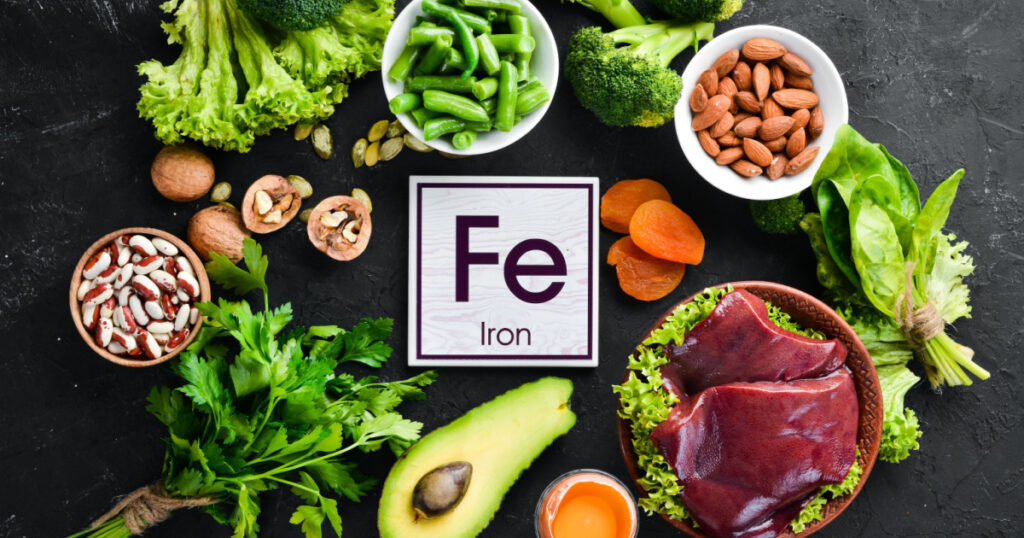
- Iron
- Folate
- Zinc
- Pyridoxine (vitamin B6)
- Vitamin B12
Bruising easily or wounds healing slowly

People may notice that they bruise easily or that cuts and sores are slower to heal than usual. This could indicate they are deficient in vitamin C and zinc. But this may occur because of other health conditions, so speaking to an expert is recommended, especially if test results show no sign of deficiency. [2]
Acrodermatitis enteropathica

Symptoms of AE include skin inflammation and pimples appearing around the mouth and/or anus, diarrhea, and nail abnormalities. It’s a disorder that comes from a zinc deficiency, but it comes in different forms. One is a rare genetic disorder where the intestines can’t absorb zinc. This condition could also be acquired due to syndromes that cause malabsorption, like celiac disease, Crohn’s disease, alcoholism, and poor diet. Additionally, it could appear in premature infants, who have a low birth weight, or don’t get enough zinc from the mother’s milk. [3]
Read: B vitamins could help treat severe nonalcoholic fatty liver disease
Pellagra
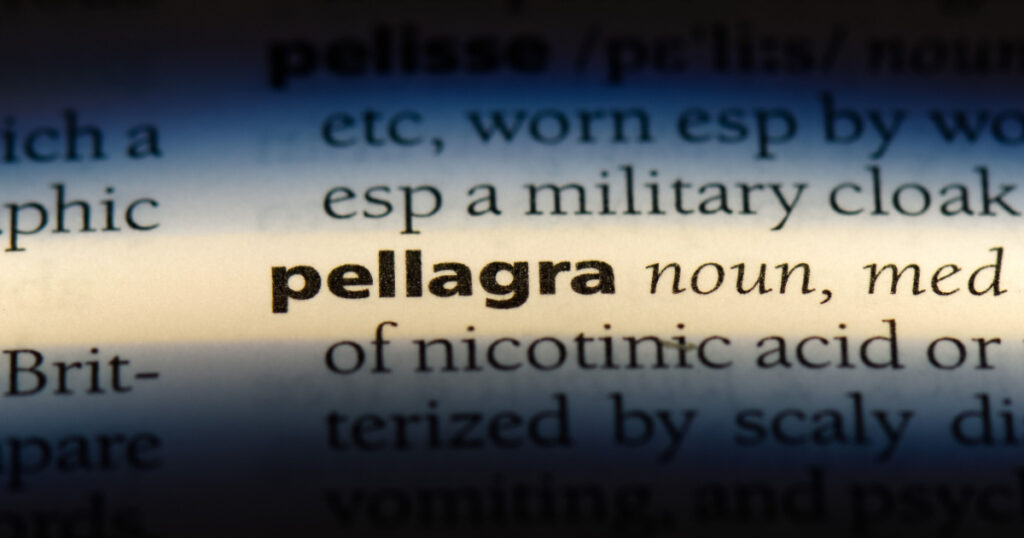
Pellagra is a condition caused by a deficiency in vitamin B3, also called niacin. Like acrodermatitis enteropathica, it can lead to serious health complications if left untreated. Moreover, symptoms include dementia, diarrhea, and dermatitis, which is a general term for skin inflammation on the face, hands, feet, or lips. It might also cause mouth sores. Pellagra is not a common disease nowadays, but it can affect people in developing countries or those who can’t properly absorb vitamin B3. The latter includes people with alcoholism, eating disorders, gastrointestinal diseases, and medications like anticonvulsants and immunosuppressive drugs. [4]
Dry skin, cracked lips, and mouth sores
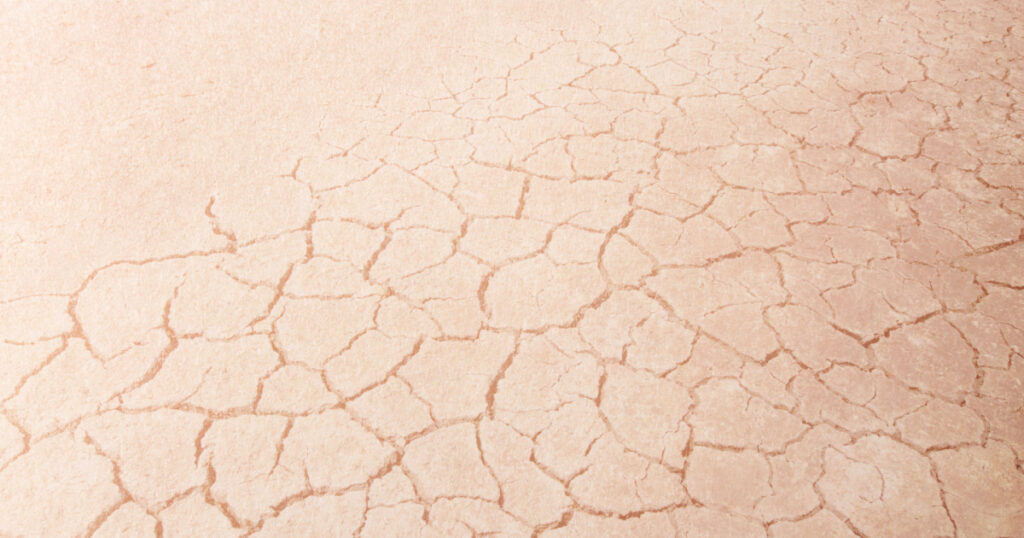
As seen with previous nutrients, vitamin B2 or riboflavin deficiency appears in people whose diets are poor or if they can’t absorb it properly. But vitamin B2 deficiency can occur for another reason. The body does not store B2, so it excretes any additional amounts. So a poor diet can be particularly damaging if the person regularly does not eat foods with vitamin B2. The symptoms include cracked lips, red lips, dry skin, and mouth sores. [5]
Read: Researchers find that brains with more vitamin D function better
Dry, scaly, and itchy skin
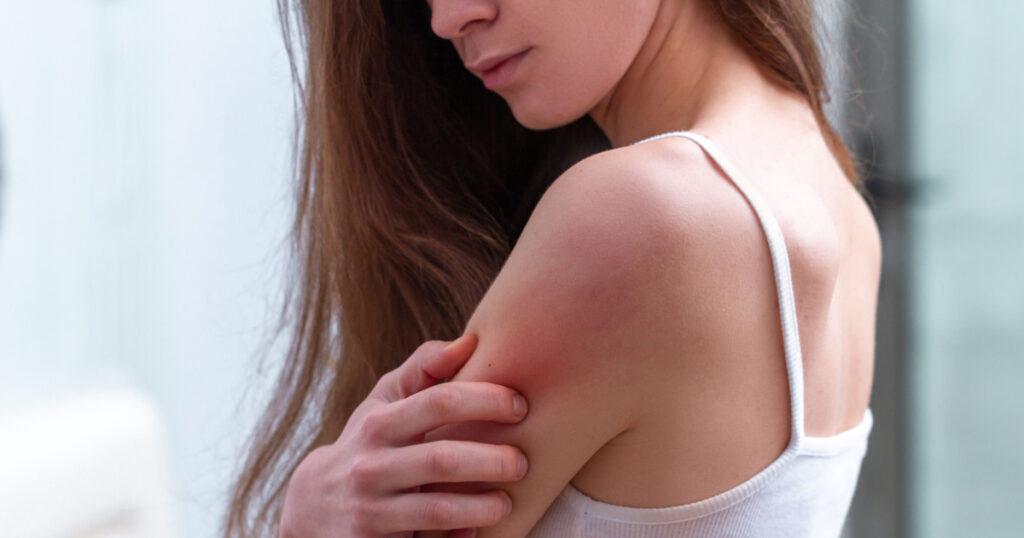
Vitamin A is crucial for many functions in the body, including healthy vision, metabolism, immunity, and cell development. Therefore, a deficiency can result in dry, scaly, and/or itchy skin. Other symptoms include dry eyes as well as vision problems. The liver stores most of the vitamin A in the body, so diseases and conditions that impair the liver and intestines could lead to a deficiency. Interestingly, one of these impairing conditions is zinc or iron deficiency. [6]
Foods to Fix Deficiencies

If you suspect you may have vitamin deficiencies, speak to a health professional. “Blood tests can help determine if you are deficient,” says Kate Patton, RD, a dietitian at the Cleveland Clinic. “I encourage food first, but if you are at an increased risk of a nutrient deficiency, you may benefit from taking a multivitamin.” People at increased risk include pregnant women, elderly people, and people with restrictive diets that won’t allow them to get certain nutrients from food. Otherwise, eating a balanced and nutritious diet is the best way to avoid or treat deficiencies. [7]
Riboflavin (vitamin B2)

Avocados, artichokes, asparagus, cruciferous vegetables, dairy products, eggs, fish, beef, chicken, liver, whole grains, nuts, mushrooms, and pumpkins
Niacin (vitamin B3)

Red meat, fish, poultry, nuts, seeds, legumes, brown rice, and bananas
Pyridoxine (vitamin B6)

Beef liver, salmon, chickpeas, poultry, tuna, dark leafy greens, cantaloupe, oranges, bananas, and papayas
Vitamin B12
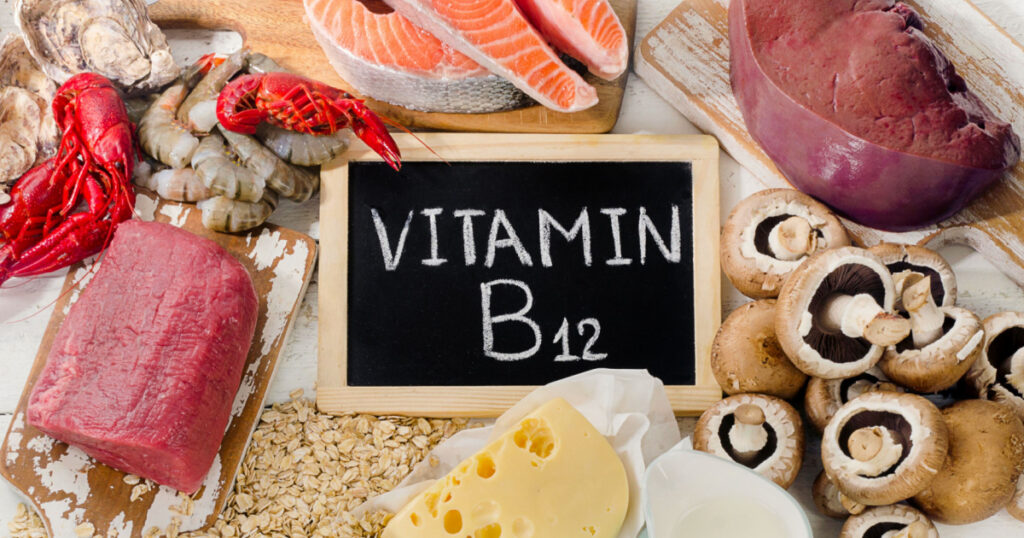
Fish, chicken, milk, yogurt, as well as fortified cereals and fortified plant-based milks
Vitamin A

Beef, eggs, salmon, liver, chicken, leafy greens, broccoli, carrots, pumpkin, oranges, cantaloupe, squash, as well as fortified dairy products or cereals
Zinc
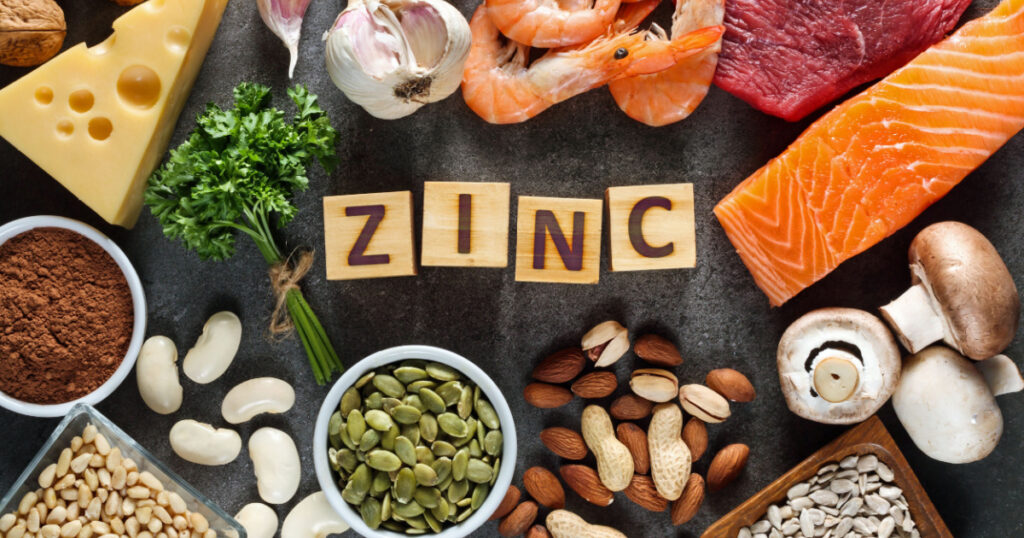
Oysters, crab, beef, pork, lobster, legumes, nuts, oats, seeds, and tofu
Folate
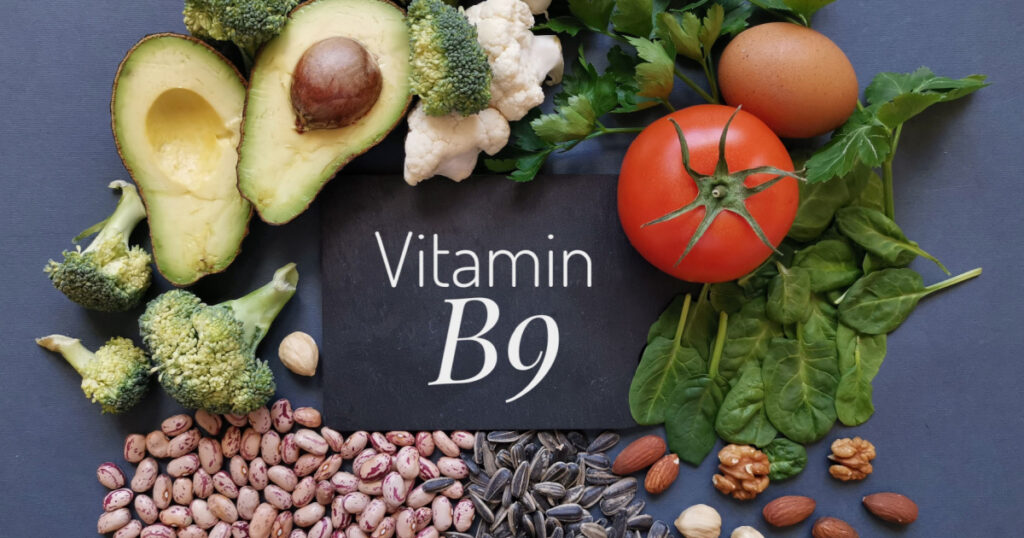
Beans, peanuts, dark leafy greens, eggs, sunflower seeds, whole grains, and fortified cereals
Iron
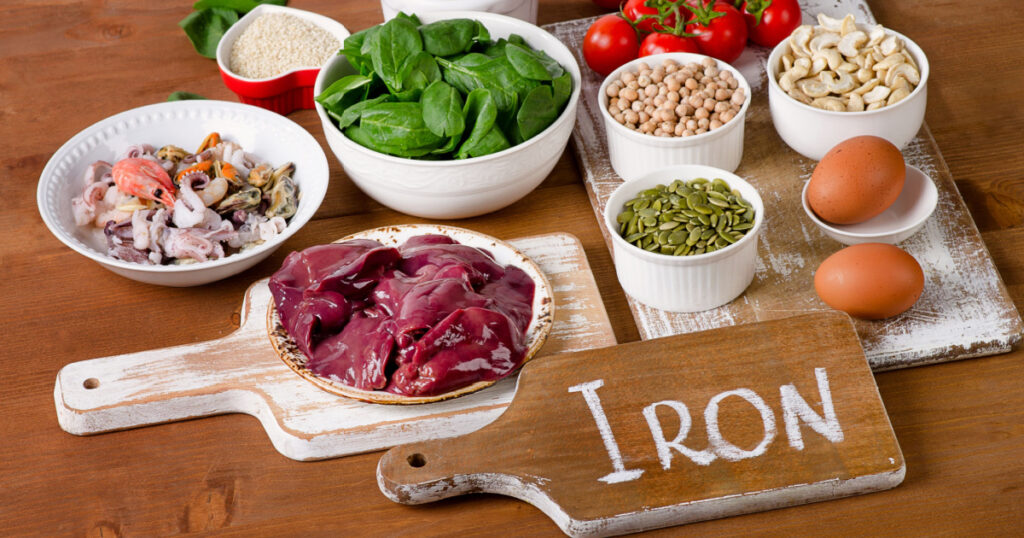
Spinach, lentils, beans, beef, oysters, and fortified cereals.
Keep Reading: 8 Medications That May Cause Hypothyroidism
Sources
- “8 Common Signs You’re Deficient in Vitamins.” Healthline. Alina Petre, MS, RN (NL).
- “Are skin issues a sign of underlying nutrient deficiencies?” Nutritionist Resource. V. J. Hamilton, Autoimmune Disease Expert | BSc (Immunology), DipION, mBANT.
- “Acrodermatitis Enteropathica.” National Library of Science. Nicolai Nistor.
- “Pellagra.” Healthline. Megan Dix, RN, BSN.
- “Benefits and sources of vitamin B2.” Medical News Today. Yvette Brazier.
- “Vitamin A Deficiency.” Cleveland Clinic.
- “7 Common Nutrient Deficiencies: Know the Signs.” Every Day Health. Elizabeth Shimer Bowers and Moira Lawler.
Disclaimer: This information is not intended to be a substitute for professional medical advice, diagnosis or treatment and is for information only. Always seek the advice of your physician or another qualified health provider with any questions about your medical condition and/or current medication. Do not disregard professional medical advice or delay seeking advice or treatment because of something you have read here.
